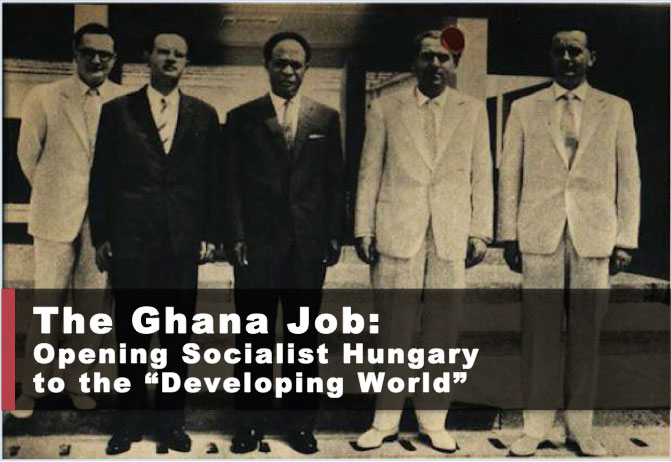17 April 5:30 PM
 Seminar Room
Seminar Room
Department of Sociology
Rutgers University
26 Nichol Ave
New Brunswick, NJ 08901
Why was Hungary interested in the decolonized “developing world”? What does this episode of Eastern European history tell us about shared postcolonialities, transnational interconnectivity, and semiperipheral positioning or development strategies? My talk introduces why and how socialist Hungary decided to develop foreign economic relations with decolonized countries, which in turn facilitated a new orientation towards the world and the emergence of Hungarian development expertise towards developing countries.
My study investigates the Centre for Afro-Asian Research (CAAR) founded at the Hungarian Academy of Sciences in 1963 (in 1973 renamed as the Institute for World Economy, IWE) parallel to similar institutions founded internationally at that time. CAAR was established as a government think tank by József Bognár, who was a close friend to Prime Minister János Kádár and a hugely important figure in socialist era Hungarian reform economics and foreign economic policy-making. The associates of CAAR and IWE promoted export-oriented growth and fabricated new geographical development concepts as alternatives to the dichotomous Cold War categories of “capitalist” and “socialist” worlds in order to reposition Hungary in the world economy. The institute evolved out of the “Ghana job”: during his Eastern European round-trip president Kwame Nkrumah asked Bognár and his team of economists to develop the First Seven-Year Plan of Ghana in 1962.
During the Nkrumah period, the pan-Africanist, African socialist and Non-Aligned country of Ghana became a transnational hub of various experts and intellectuals, and a contested site not only of conflicting and intertwined “socialist” and “capitalist” views on development, but also of intensive cooperation and competition between Eastern Bloc countries in asserting their influence in the decolonized world. With Bognár’s assignment, the issue of “poorly developed countries” ignited the comparative reconceptualization of development histories in Hungary and led to exporting the Hungarian development model to the “Third World” based on the discourse of anti-imperialism, socialist solidarity and shared postcolonial histories.
In this context, I interpret the “Ghana job” from a postcolonial and world-systemic perspective as situated in a complex web of transnational relations, and point out Ghana’s decisive role in opening semiperipheral Hungary towards the global periphery during the 1960s by generating a field of development expertise, which enabled entrance into a new market of transnational development consultancy.
Download flyer (.pdf).
This research received support from the “NKFIH K No. 115870” project entitled “Contemporary theories of space and spatiality in the Central Eastern European context” (“Kortárs térelméletek közép-kelet-európai kontextusban”) funded by the National Research, Development and Innovation Office (NRDIO) in Hungary.
